Make it yours
Every experience is customised to be just right for you.
WILDLIFE VOLUNTEERING: THE RED FLAGS MOST PEOPLE MISS
Learn more
Protect the pack. Safeguard their wilderness.
After two days trekking through the Okavango area, you spot it. A flash of colour in the undergrowth. It’s the distinctive ‘painted’ coat of a pack of wild dogs. You’re now one of the few people on Earth to have seen these elusive and endangered hunters in the wild.
Inhabiting areas of true wilderness, the African wild dog is under threat from habitat loss, rival predators and disease. When you volunteer with African wild dogs in Africa with African Conservation Experience, you join conservationists working on real African wild dog (painted dog) projects. As a volunteer, you’ll help monitor packs, collect behavioural and ecological data, and support the teams working to protect this remarkable species.
It’s a rare chance to contribute to one of Africa’s most endangered carnivores, with fewer than 1,500 mature individuals left in the wild.
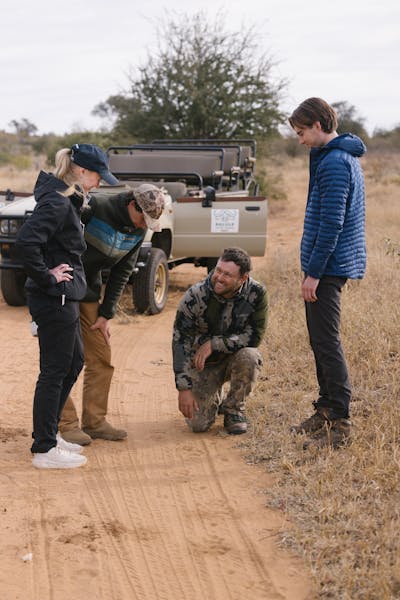
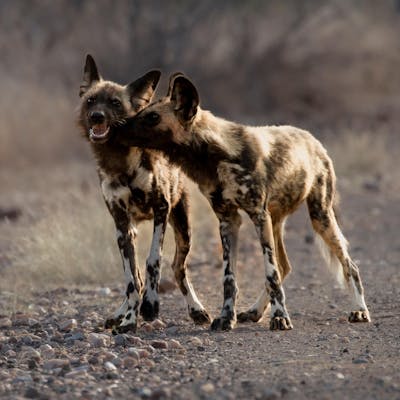
Explore African Wild Dog conservation projects in Africa.

Go off the beaten track in a remote bush camp, and monitor lions, elephants and raptors
View details for Umsele Field Conservation Project - In Partnership With Balule & EWT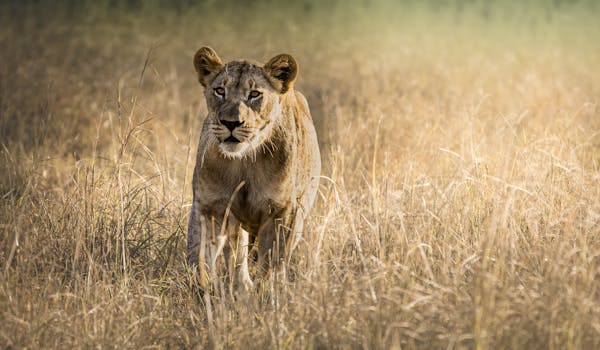
Go behind the scenes on a Big 5 reserve and join one of the biggest conservation success stories
View details for Phinda Wildlife Research Project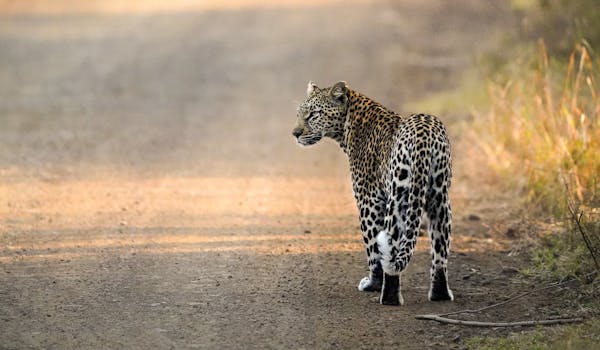
Get a unique behind the scenes experience in one of the largest and most important conservation areas in Africa
View details for The Vikela Kruger Conservation Experience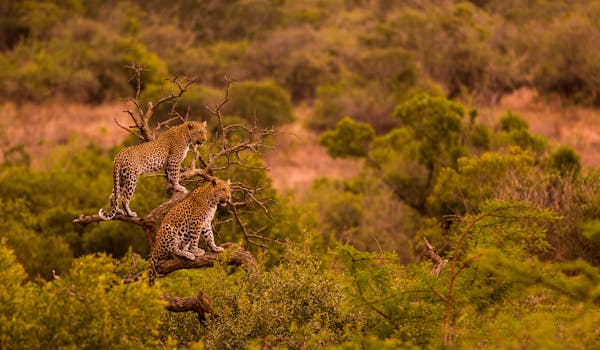
Explore a variety of animals in the Okavango Delta, home to the largest elephant population on Earth
View details for Okavango Wilderness ProjectClick the button to access your free guide. We've also sent it to your email.
Inside: the 8 red flags that reveal exploitation, the 10 green flags that prove genuine conservation, and the questions to ask before you book.
Download now
An African wild dog in the Okavango, photographed by a volunteer
Commonly referred to in South Africa as African wild dogs, there are over 10 other names to pick from, including Cape hunting dogs, African-painted dogs, and African-painted wolves. Despite the various names, African wild dogs are only distant relatives to both European and American wolves and domestic canines.
Their Latin name Lycaon pictus directly translates as painted wolf, a name that depicts the mottled white, brown, and black colouring that gives each animal its unique patterned coat. Their lean build, 'satellite dish' ears, and team-oriented approach to hunting make them incredible predators on Africa's plains and savannahs. They are opportunistic, meaning wild dogs hunt a wide variety of prey. Their diet is made up of mammals like antelopes, warthogs, wildebeest, calves, and rats, as well as birds and insects.
African wild dogs are key to maintaining ecosystem balance through their role as one of Africa’s most successful hunters. They contribute to biodiversity by controlling prey populations and their movements. However, with numbers declining, African wild dog conservation has become increasingly important. The International Union for Conservation of Nature (IUCN) has classified African wild dogs as Endangered and the second-most endangered carnivores in Africa. This highlights the critical urgency of their protection and the need for wild dog conservation efforts.
So, how do we protect this species? Understanding the challenges they face is the first step. Even in protected areas with lots of food and water sources, the habitat may not be suitable for the pack as they could be competing with other large predators like lions. These larger predators also directly prey on wild dogs. And even though wild dogs are fast and determined hunters, they lack the strength to fend off these attacks.
In the face of such threats, they sometimes retreat to less favourable habitats. However, with their remarkable hunting success rate of approximately 60-90% and their ability to cover long distances, they’re able to raise their pups safely away from alpha predators.
Another threat comes from the coexistence of domestic and wild canines. Despite their distant relation to domestic dogs, African wild dogs are highly susceptible to the same diseases. Infection can spread rapidly within their family groups as they regurgitate food for their young. Implementing a vaccination programme for domestic dogs near territories of wild dogs can reduce disease transmission.
Habitat fragmentation also poses a significant threat, as wild dogs require large areas to thrive. Creating wildlife corridors that allow them to move between areas of land is a successful way to prevent population isolation and improve genetic diversity. Wildlife corridors can also be used to steer packs away from areas with livestock, reducing the risk of conflict with humans. Collaboration among governments, private landowners, and local communities is essential to creating and maintaining access to these corridors.
African wild dogs are tough, impressive animals, but these are just some examples of the threats they face from every angle. Without space and conservation efforts, the way that these animals live, breed, and hunt as a unit goes from being one of their greatest strengths to their biggest vulnerability.
An alpha female typically has a litter of 10 to 12 pups, but sometimes it can be up to 21 pups! That's more than any other dog species!
Special muscles allow the large rounded ears of African wild dogs to swivel, giving these predators incredible hearing.
These predators are the endurance champions of the savanna. They can cover huge distances at up to 44mph - that’s 70kph - the same speed as a greyhound!
Their distinct colourful, patchy coat is not only beautiful but also completely individual. Like a human fingerprint, it's a unique identifier for each animal.
When pregnant females or pups are in the den, the rest of the pack will return from a successful hunt to regurgitate meat to feed the mother and pups.
With one of the highest hunting success rates among large African carnivores, the pack’s dynamic teamwork is a great indicator of the intelligence of the African wild dog.
African wild dogs have a distinctive pack structure led by a dominant pair - an alpha male and female.
African wild dogs play a vital role in ecosystems as top predators that help control prey populations and prevent overgrazing. This balance supports plant life and biodiversity, making the conservation of African wild dogs crucial for healthy habitats. Through wild dog conservation efforts and painted dog conservation projects, volunteers can directly support ecosystems across Africa. African wild dog volunteer projects and broader conservation programs for endangered species are essential to save the African wild dog and ensure the future of these remarkable animals.
We specialise in volunteering in southern Africa. Our African wild dog volunteer projects are based in South Africa and Botswana.
You can volunteer on an African wild dog project with us by simply submitting an enquiry form. We offer African wild dog conservation projects for all experience levels and interests. You can find out more about how we take time to create a customised African Conservation Experience that’s just right for you here.
We can't wait to speak with you about the best opportunities for African wild dog volunteering in Africa!


